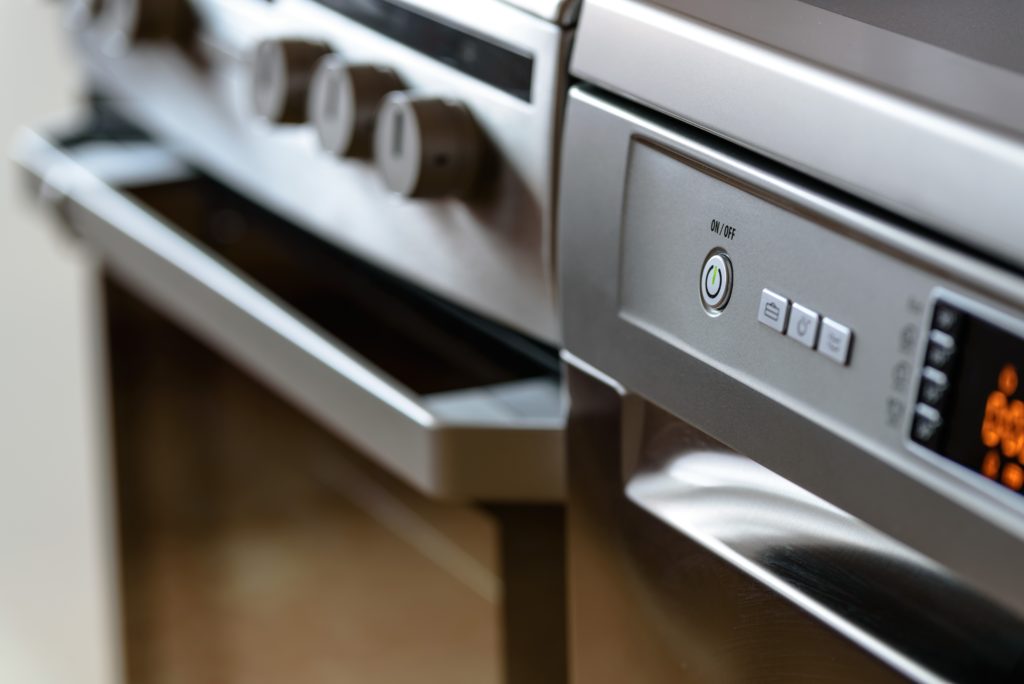How Long Do Appliances Last?
Appliances may never last as long as you would like. However, knowing what's reasonable to expect can help you decide whether to repair that busted washer or to replace it.
Research suggests that appliance lifespans are between 10-15 years and have been declining over time. This may be due to planned obsolescence or to the relative delicacy of digital parts. It could also be that consumers are replacing appliances more often as new features are developed, so manufacturers are not making machines to last beyond our desire to use them.
It is certainly true that digital features can make your appliance more fragile, if only because there are more parts that can fail. For this reason, more expensive devices will not necessarily have longer lifespans. Sorry for the bad news.
A Quick Guide to Common Appliance Lifespans
You may be interested to know that, if you figure most of your appliances will last a good 10 years, you're not alone. This is sometimes optimistic and in other cases far too conservative. That said, it's not uncommon to run into issues within the first five years of owning a new fridge, dishwasher, water heater, etc.
Incidentally, most manufacturers also tend to say their equipment will last about 10 years, though there are a couple who will boast lifespans twice that or more.
We've prepared a quick guide to the most common questions about appliance durability. It can give you a sense of what to expect.
Of course, the only way to know for sure is to have one of our repair technicians have a look. We'll give you an honest assessment and tell you the cost before we do a thing.
How long do refrigerators last?
Refrigerators tend to be hardy and can last anywhere from 11 to 19 years or more. What kind of fridge you have matters. The side-by-side type tends to have the shortest life, while the rare single-door type will last the longest. Compact refrigerators fare the worst, averaging about 9 years. It all has to do with how hard the compressor has to work to keep things cool.
How long do freezers last?
The lifespan for freezers, like refrigerators, has to do with the compressor. The harder it has to work, the quicker the freezer burns out. Still, freezers average about 11 years of operation. Some can make it to 16 years or more with proper care.
Chest freezers often last 15–20 years because they are built with long-term use in mind. Upright freezers, on the other hand, have lifespans of 10–15 years like the freezer on your fridge.
How long do ovens last?
Oven lifespan has to do with your range or stove components. Gas ranges last a long time, a good 15 years. Electric ranges tend to quit a little earlier, around 13 years. The life of both kinds can be extended with proper care and cleaning. Companies who have been in the oven business for a long time have the best track records for appliance lifespan.
The range hood installed over your stove will go strong for 14 years or so.
How long do microwaves last?
Microwaves have one of the lowest appliance lifespans, averaging about 9 years. They get a lot of use, after all, but really it's the transformer and the magnetron that you have to worry about. Those are the parts that do most of the work to heat your food, and they can only put up with so much wear and tear.
How long do dishwashers last?
Expect dishwashers to last a minimum of 9 years and up to about 13 years. Durability depends a lot on use. It's said the average household runs their dishwasher 5 cycles per week. At that rate, many dishwashers may need replacing after only 7 years. The important thing, here, is to keep the filter clean and replace it if it gets a hole so you protect your pump.
How long do garbage disposals last?
Garbage disposals can last up to 12 years with proper care. That means knowing what you can and can't put down your drain, like bones, celery, or grease. It's also worth occasionally cleaning it to keep the moving parts in good order.
How long does HVAC last?
It's generally safe to assume an HVAC system will work fine for 15–20 years. When we speak of HVAC, keep in mind that we are not talking about one unit but a system of connected parts that work together: your heating, ventilation, and air conditioning.
Many systems will keep going for 25 or more years with the replacement of certain parts, so some technicians will argue that you can keep an HVAC system going for almost as long as you would like. At some point, of course, you may decide that it is worth upgrading to a more efficient system.
How long does a furnace last?
Furnaces are real workhorses and can go strong for decades. The average lifespan of a furnace depends on what kind of furnace you have, but don't be surprised if you see estimates between 15 and 30 years and even up to 40 years.
You'll want to keep two things in mind for furnaces. First, they last longer with annual maintenance. Second, it may be wise to begin educating yourself about furnaces when yours reaches 15 years old. That is about the point at which you can expect repairs to get increasingly expensive. When it's time to replace your furnace, you'll want to already have an idea of what you want.
How long do air conditioners last?
Central air conditioning systems last 15–20 years. Newer units are increasingly efficient, but older units are often supported for a long time.
Window air conditioners have shorter lifespans—about 10 years.
How long do washing machines last?
Washing machines manufactured today last 11–14 years. These numbers are based on a household average of 7 loads per week, so decreasing the number of loads you do can improve the machine's life. However, keep in mind that overloading your washing machine can stress the motor, drive belt, and other parts, thus decreasing the lifespan.
How long do dryers last?
Dryers have a lifespan of 10–14 years, similar to washing machines. This, of course, depends on the number of cycles, but one of the easiest things you can do to keep it working strong is to clean the lint trap.
Getting the Most from Your Appliances
Knowing the lifespan of these common major appliances can equip you to make an informed choice about whether to repair or to replace your machine. You can get more life out of your appliances if you give them regular maintenance.
And if you keep track of how you use each unit, you will be better able to estimate whether it makes more economic sense to keep an existing unit in operation or upgrade to something that boasts energy efficiency. If you do one load of wash a week, for instance, it will take a long time to make up for the cost of new machines in your water and electric savings.
If your refrigerator, dishwasher, dryer, etc., isn't working right and should have a few more years in it, let one of our expert technicians give you a quote on what it would take to get it working properly again.

